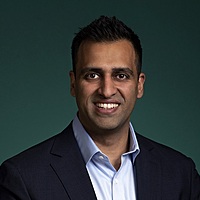FAANGs' enterprise value is what makes them unstoppable

Global X ETFs
Blue-chip shares – everyone wants to own them. But what are they? And do the world’s largest technology companies – Facebook, Amazon, Apple, Netflix, Google (the “FAANGs”) – count as blue-chip?
In this discussion, I spoke with Owen Raszkiewicz, founder of Rask, about what a blue-chip company is, and whether the “FAANGs”—Facebook, Amazon, Apple, Netflix, Google—qualify.
For Owen, blue-chip companies have four attributes:
- Maturity
- Brand strength
- Wide moats
- Dividends
This means that for him, FAANGs do not qualify as blue chips. This is because they are still growing very quickly and are, therefore, not mature. Additionally, many of them do not pay dividends. He adds, however, that what counts as blue-chip is subjective.
While not necessarily blue chips, Owen believes that the FAANGs may be “unstoppable” nonetheless, given their near-total control of global communication.
The FAANG’s dominance today bears a resemblance to big oil 100 years ago—where market power begat greater profits for oil companies, which begat greater market power still. But with great market power comes the possibility of regulation, which has been a lurking threat for the FAANGs.
Absent regulation, the only question left is valuations and what investors should be willing to pay for the FAANGs.
For my part, I agree that the FAANGs seem unstoppable. For the same reason, I wonder whether the FAANGs can be valued the same way as more traditional blue chips.
Even at $2 trillion market capitalisation, Apple is growing very quickly making it different to local blue chips like Woolworths and Westpac. Potentially justifying a different PE ratio, among other things.
Owen agrees that the FAANGs can arguably justify their higher valuations.
One reason is the large cash piles that these companies sit on.
Apple, for instance, has more than $90 billion in cash (Google has even more). When calculating the value of the FAANGs, removing their cash piles from the share price is a crucial step. Yet many investors forget to do this and instead take shortcuts like looking at PE ratios.
He suggests that enterprise value may be a better measure than just market capitalisation.
For investors with the time and know-how, a discounted cash flow analysis is more useful than crude valuation ratios.
In the final piece of the conversation, I ask Owen which companies he believes may be the FAANGs of the future. He gave two tips: Salesforce, a stock that he owns. Salesforce is the central sales technology in many companies. His other tip is Adobe, which has become ubiquitous with photoshop and acrobat.
Access a range of opportunities
ETF Securities offer a range of ETFs across asset classes, regions, sectors and themes for your investment portfolio. Click the 'FOLLOW' button below for more of our insights.
1 topic

Expertise

